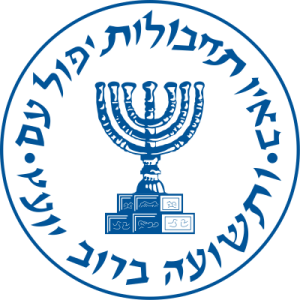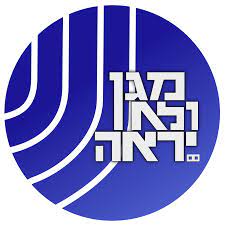Israeli Intelligence Agency
Israeli Intelligence Agency - Mossad
Mossad is Israel's national intelligence agency. It is one of the main entities of the Israeli intelligence community, along with Aman (military intelligence) and Shin Bet (internal security).

Mossad was established on December 13, 1949 by Israel's founder and first prime
minister, David Ben Gurion.
The Mossad is in charge of state covert
operations, is responsible for counter-terrorism intelligence information
collection, defeats the threat of terrorism, and provides intelligence for ensuring
the safety of the government and security systems and foreign affairs. Its
activities are designed to protect Israel's national security and to promote the
national goals of its Prime Minister and Government in accordance with the laws and
values of the State of Israel.
In contrast to the government and military,
the goals, structure and powers of the Mossad are not bound by the Constitution of
the State of Israel. However, its activities are governed by secret procedures that
have never been published. Its Director reports directly to the Prime Minister. Its
counter-terrorist unit is known as Kidon.
With an annual budget of about $3
billion and 7,000 employees, the Mossad is the second largest spy agency in the
Western world after the CIA, which makes the person chosen to head the Mossad very
capable.
Chiefs of the Mossad
Cohen is suspected of
being behind the 2020 assassination of Iran's nuclear weapons chief, Mohsen
Fakhrizadeh. Under his influence, the Mossad increased its budget and personnel,
nearly replacing the Ministry of Foreign Affairs' strategic relationship with the
Sunni Arab world, according to the Times of Israel.
Tamir Pardo, Cohen's
previous supervisor, has often been portrayed as more conservative, focused on
intelligence gathering. But German news outlet Spiegel Online has linked him to the
assassination of Iranian nuclear scientist Darioush Rezaei, who was shot in the
throat by two assailants on motorcycles.
Dagan, a decorated general and spy
expert, has been described as a "bold commander". He has reportedly carried out
operations abroad, including assassinations of Hamas and Hezbollah operatives in
Dubai and Damascus.
Since its establishment, Mossad has used human
intelligence and signal intelligence to collect intelligence needed by the country.
The Mossad worked hard to save the Jews from distress and bring them to Israel. The
most prominent of these actions was Operation Moses, which brought Ethiopian Jews to
Israel. The agency is and remains a major force in the fight against terrorism
against Israeli and Jewish targets.
Israeli Intelligence Agency - Aman
The Israeli Military Intelligence, often abbreviated to Aman, is the central,
overarching military intelligence body of the Israel Defense Forces. Aman was
created in 1950, when the Intelligence Department was spun off from the
IDF's General Staff (the Intelligence Department itself was composed largely of
former members of the Haganah Intelligence Service). Aman is an independent service,
and not part of the ground forces, Navy or the Air Force.
It is one of the
main entities (and the largest component) of the Israeli Intelligence Community,
along with Mossad and Shin Bet. It is currently headed by Major General Aharon
Haliva. Although often overshadowed by Mossad and Shin Bet, Aman has historically
been the largest Israeli intelligence agency. It is a part of the military general
staff, reporting to the Chief of Staff and the Minister of Defence. It includes the
cyber warfare branch Unit 8200, the secret technology Unit 81, and the training
course Havatzalot Program. Its special operations unit is General Staff
Reconnaissance Unit (Sayeret Matkal).
Aman provides the Prime Minister and
Cabinet with comprehensive national intelligence estimates, daily intelligence
reports, estimated risks of war, targeting studies of nearby countries, and
communications intercepts. Aman is also responsible for cross-border agency
business.

In 1976, according to the Lexicon of National Security, some of Aman's principal
roles consisted of:
1.Intelligence evaluation for security policy, military
planning and "fluid security policy," and the dissemination of intelligence to IDF
and governmental bodies.
2.Field security at the level of the General Staff,
and the training and operation of field security in general (all levels).
3.The operation of military censorship.
4.Direction and operation of the
"Collection Agencies".
5.Drawing maps; providing the direction and
supervision for the dissemination of maps.
6.The development of "special
measures" for intelligence work.
7.The development of intelligence doctrine
in the realms of research, collection, and field security.
8.Staff
responsibility for military attachés overseas.
Israeli Intelligence Agency - Shin Bet
The Israel Security Agency , better known by the acronym the Shin Bet or Shabak, is
Israel's internal security service. It is one of three principal organizations of
the Israeli intelligence community, alongside Aman (military intelligence)
and Mossad (foreign intelligence service). Although the Shin Bet is a security
agency, it is not part of the Israeli Defense Ministry and is directly responsible
to the Israeli Prime Minister.
Shin Bet's responsibilities are to maintain
national security, discover terrorist organizations and individuals, interrogate
terrorist suspects, provide intelligence for anti-terrorism and anti-espionage
operations in the West Bank and Gaza Strip, provide personal protection for senior
public officials, protect important infrastructure and government buildings, and
protect EL AL and overseas embassies.

Shin Bet selects members almost harshly. To become a member of the Shin Bet, you must
have served in the Israeli combat forces and pass a series of tests such as physical
fitness, reaction speed, and family background inspections. And because members of
the VIP Guard may often appear in public with dignitaries, their appearance must
also meet certain standards. After this selection, only 3% of the people can enter
the VIP Guard.
And all members who enter the Shin Bet must also study in
the schools of the Israeli security services. There, they will learn courses
including security concepts, security plan design, routine and emergency response
measures, the use of various equipment and even how to recruit and train security
personnel.
Israel's monitoring system can detect suspicious packages placed
in crowded places within a short period of time and automatically issue a warning.
But where and what angle these monitoring devices should be installed depend on the
assessment and decisions made by Shin Bet members on the specific environment. If
they make wrong assessments and decisions, the equipment will be useless, which is
why they have to undergo rigorous training.